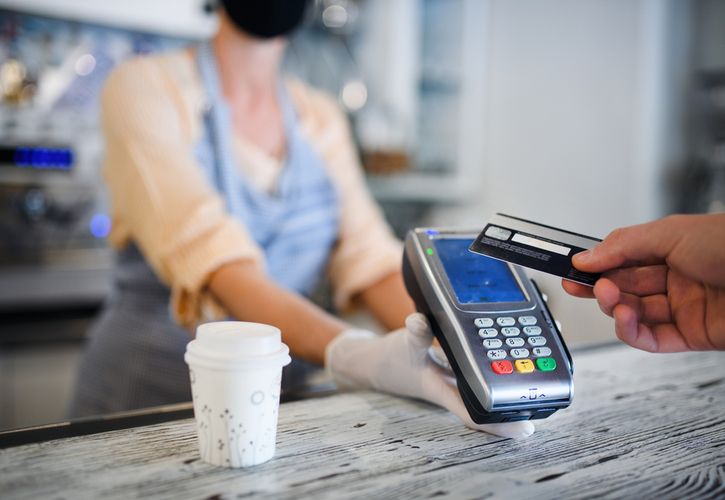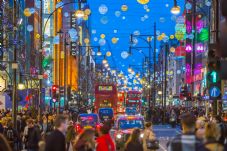UK DIY News
Barclaycard: Consumer Spending Grew 16% In November

- Spending on non-essential items saw its highest increase since before the pandemic, with growth recorded across many sectors
- Colder and darker evenings meant nights at home proved popular, with surges in spend on takeaways, subscriptions, and electronics
- Almost four in 10 Brits who celebrate Christmas are trying to make this year’s festive season more sustainable or environmentally friendly
- Concerns remain over personal finances, with nine in 10 Brits worried about rising household and energy bills
- The Barclaycard report combines hundreds of millions of customer transactions with consumer research to provide an in-depth view of UK spending
Consumer card spending grew 16.0 per cent in November compared to the same period in 2019, with early Christmas shopping and festive pursuits giving a boost to retail, hospitality and leisure. Colder and darker evenings also encouraged Brits to spend more on at-home activities, leading to growth in takeaways, subscriptions, and electronics.
Data from Barclaycard, which sees nearly half of the nation’s credit and debit card transactions, reveals that spending on essential items rose 12.5 per cent – slightly less than in October (13.2 per cent), as spending at supermarkets (13.0 per cent) and specialist food and drink stores (64.7 per cent) recorded marginally smaller month-on-month increases (14.2 per cent and 69.2 per cent respectively).
Spending on non-essential items saw its highest growth since before the onset of the pandemic (17.7 per cent). This was driven by uplifts across the retail, hospitality and leisure sectors, as Brits enjoyed the start of the festive season, with in-store retail spend (6.7 per cent) seeing a moderate increase on October (6.4 per cent). Clothing also recorded its largest uplift (11.0 per cent) since before the start of the pandemic as shoppers stocked up on warmer items for winter.
With Christmas on the horizon, almost four in 10 (37 per cent) consumers who celebrate it say they are buying gifts earlier than normal this year. This comes as ‘specialist retailers’ – such as gift shops, toy shops and jewellers – recorded a sizeable increase of 21.1 per cent. Other categories to benefit included sports and outdoor retailers (28.8 per cent), as well as pharmacy, health and beauty (16.5 per cent).
However, Brits are still worried about the long term stability of their personal finances, with nine in 10 (88 per cent) concerned about rising household and energy bills, and a similar proportion (87 per cent) concerned about rising inflation.
Prior to the arrival of the new Covid variant, Brits came together to celebrate the arrival of Christmas markets and light displays. Restaurants, though still in decline (-4.3 per cent), saw an improvement on October (-8.3 per cent) and bars, pubs and clubs also saw growth (34.2 per cent).
Meanwhile, as the darker and colder evenings drew in, the nation continued to embrace nights at home in front of the TV, with takeaways and fast food (63.2 per cent), digital content and subscriptions (42.8 per cent) and electronics (17.2 per cent) all seeing strong growth.
This trend is likely to continue as more than one in five (21 per cent) Brits are planning to spend more on takeaways to enjoy nights in over the winter months, while a similar proportion (19 per cent) plans to spend more on home entertainment such as streaming subscriptions and online gaming.
Elsewhere, the travel sector had a small boost in November when compared to October – travel agents (-24.0 per cent) and airlines (-22.1 per cent) saw smaller month-on-month declines (-26.9 per cent and -28.1 per cent respectively) as the US reopened its borders and some Brits made holiday bookings for 2022. It remains to be seen whether this improvement will be short-lived, due to the latest travel restrictions.
Following the COP26 climate conference, environmental concerns are weighing on consumers’ minds this festive season. Almost four in 10 (38 per cent) Brits who celebrate Christmas are trying to make this year’s celebrations more sustainable or environmentally friendly than they have in the past, for example by buying recyclable wrapping paper and second-hand gifts.
Some shoppers are going one step further, with 15 per cent having, or considering, a meat-free Christmas – a figure that increases to 28 per cent for 18-34-year-olds.
While rising energy bills are causing more than a third (36 per cent) of those who celebrate to consider spending less on Christmas festivities, overall household confidence improved slightly month-on-month, rising to 72 per cent (from 70 per cent last month). However, this may be a temporary increase given the arrival of the latest Covid variant, the return of mandatory face coverings and an anticipation by consumers of further restrictions.
Jose Carvalho, Head of Consumer Products, said: “The arrival of Christmas markets and lights across the UK brought some festive cheer to the retail, leisure and hospitality sectors in November, while the return of darker nights and colder evenings saw Brits spend more on at-home pursuits such as takeaways and home entertainment.
“As we head into final preparations for the holiday season, it’s unclear how the new Covid variant and potential further restrictions will impact socialising, shopping and consumer confidence. In light of recent changes, we will need to wait and see whether this has an impact on how Brits choose to finish their Christmas shopping this year.”
Source : Barclaycard
Thank you for the excellent presentation that you gave at Woodbury Park on Thursday morning. It was very interesting and thought-provoking for our Retail members. The feedback has been excellent.











































